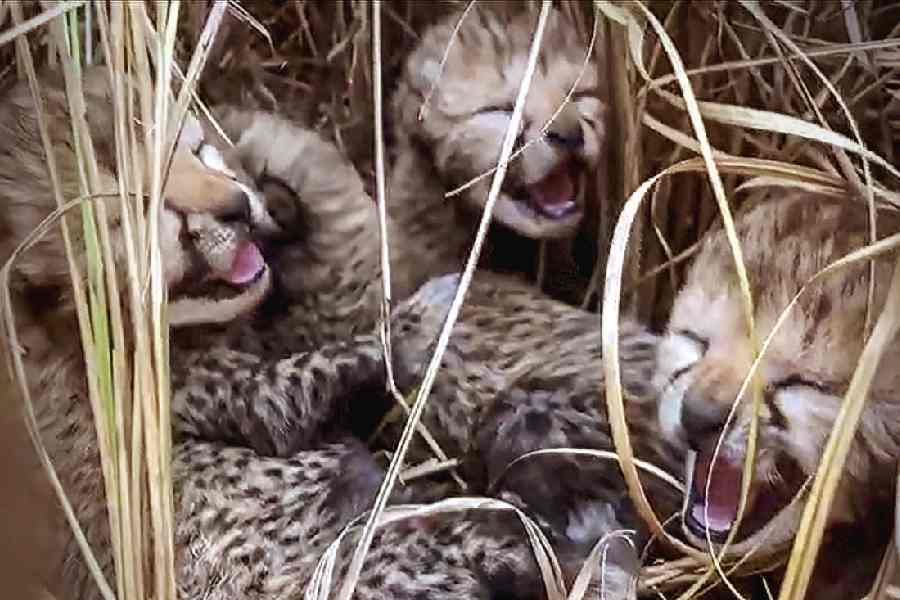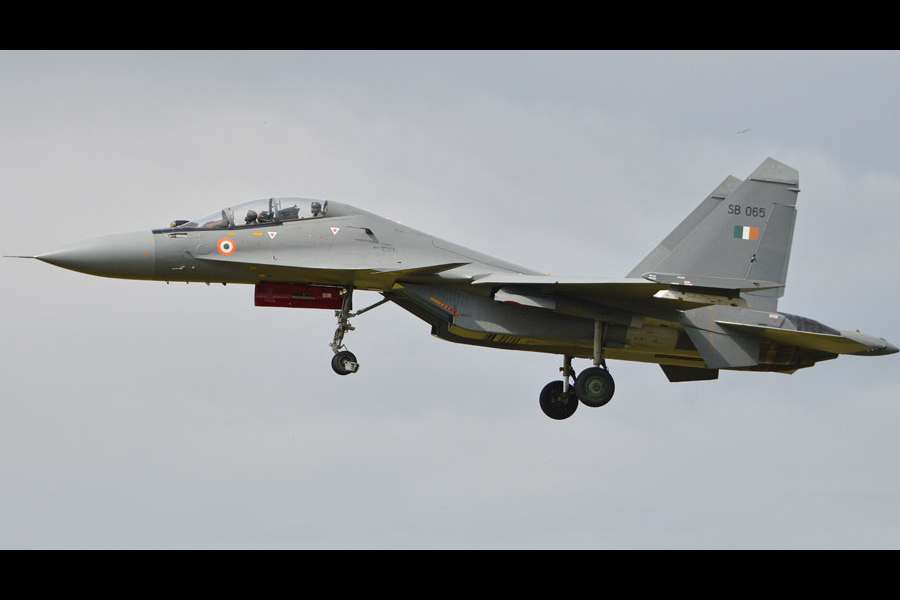Namibian cheetah Jwala has given birth to four cubs at the Kuno National Park in Madhya Pradesh and not three, as reported previously, Union Environment Minister Bhupender Yadav said on Wednesday.
The births, first reported on Tuesday, came just weeks after three cubs were born to another Namibian cheetah, Aasha.
Yadav said in a post on X, "Wildlife wonders! As frontline wildlife warriors managed to get closer to Jwala, they found she has given birth to four, not three, cubs. This has increased our joy several times over. Congratulations all. We pray the cubs thrive and prosper at their home in India." According to officials, the cubs were born to Jwala on January 20.
This is Jwala's second litter and comes after a gap of 10 months.
Jwala (Namibian name Siyaya) had given birth to four cubs last March. Three of the cubs succumbed to extreme heat while the sole survivor is being raised under human care for future wilding.
Yadav had on January 3 also shared information about the birth of three cubs to Aasha.
The recent births have taken the number of cubs at the Kuno National Park to eight at present, with seven being born this month.
The total number of cheetahs at the Kuno National Park currently stands at 21 (six males, seven females and eight cubs).
This has been a mixed month for India's cheetah project. While January recorded the birth of seven cubs, it also witnessed the the death of Shaurya -- an adult Namibian cheetah -- on January 16.
Since last March, seven adult cheetahs, including Shaurya, have died due to various reasons.
The seven adult cheetahs -- three females and four males -- that died include Sasha, Uday, Daksha, Tejas, Suraj, Dhatri and Shaurya. While the first six fatalities occurred in a six-month-period between March and August 2023, Shaurya died last week.
Jwala and Aasha are among the cheetahs translocated to India from Namibia under Prime Minister Narendra Modi's Project Cheetah, aimed at re-introducing the only large carnivore species that went extinct in independent India.
The first batch of eight cheetahs was introduced in India in September 2022.
The second batch of 12 cheetahs was flown in from South Africa last February.
The much-vaunted cheetah conservation project, however, has drawn sharp criticism over the animals' deaths.
According to officials, one of the biggest challenges faced in the first year of managing the cheetahs in India was the unexpected development of winter coats by some of the animals during the Indian summer and monsoon, in anticipation of the African winter (June to September).
The winter coat, combined with high humidity and temperatures, caused itching, prompting the animals to scratch their necks on tree trunks or the ground. This led to bruising and exposing the skin, where flies laid eggs, resulting in maggot infestations and, ultimately, bacterial infections and septicemia, leading to the deaths of three cheetahs, an official explained.
"The mortalities under Project Cheetah so far have been within the expected limits. As per Cheetah Action Plan, we anticipated approximately 50 per cent mortality. Right now, 14 imported cheetahs are surviving, besides one cub born on Indian soil," SP Yadav, additional director general of forests in the Union Environment Ministry, said earlier.
He had said the project's focus in its second year would be on breeding these animals.
Yadav, also the chief of the National Tiger Conservation Authority, had said the next batch of cheetahs would be imported from South Africa and introduced into Madhya Pradesh's Gandhi Sagar Wildlife Sanctuary.
Except for the headline, this story has not been edited by The Telegraph Online staff and has been published from a syndicated feed.











